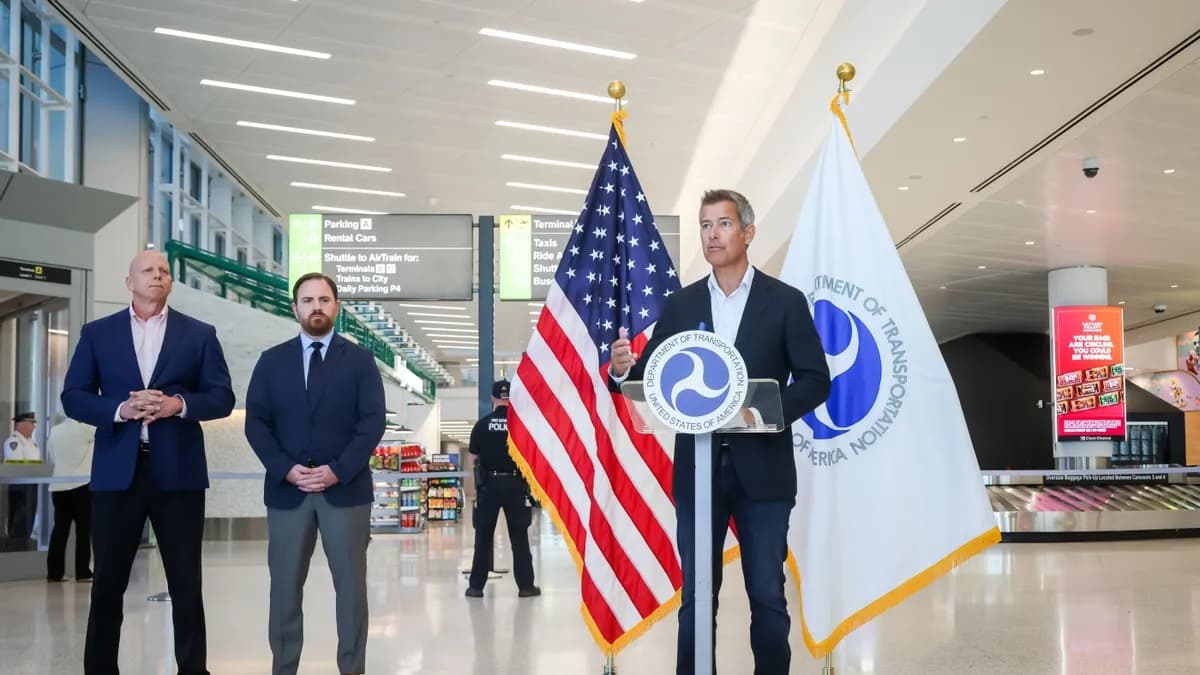Boston Logan Flight Disruptions Rise as Shutdown Strains Operations
Travelers at Boston Logan Airport face mounting delays and cancellations as staffing shortfalls tied to the federal government shutdown disrupt airport functions, intensifying holiday travel headaches. The disruptions highlight immediate economic costs and renewed pressure on Congress to resolve the funding impasse that is affecting safety related roles and the region's transportation network.

Boston Logan Airport is experiencing heightened operational strain on November 23, 2025 as staffing shortages connected to the ongoing federal government shutdown lead to increased flight delays and cancellations. Local reporting and on the ground accounts describe passengers waiting longer in terminals, airlines making schedule adjustments, and airport managers reporting that reduced federal staffing is constraining routine functions that support safe and efficient travel.
Airport officials and travelers have attributed the disruption to reduced staffing at federal agencies that provide essential support services. The shortfalls include impacts on some air traffic control support functions and security related roles, according to local coverage. Airlines operating at Logan have responded by revising schedules, trimming frequencies on some routes, and consolidating crews in ways intended to limit cascading operational failures later in the day.
The immediate effects are visible in longer lines at screening, slower processing of aircraft on the ground, and greater sensitivity to minor delays that can quickly ripple across a heavily used Northeast airspace. For carriers, the operational calculus in a constrained environment often means preemptive cancellations to avoid having aircraft and crews stranded. For travelers, the result is increased uncertainty, added costs for rebooking or overnight stays, and intensified scrutiny of government responsibility for maintaining transportation services.
The disruptions illustrate a broader institutional reality during funding lapses. Many federal employees performing nonessential tasks are placed on furlough, while others continue working without pay for roles deemed essential. In the aviation system, that can translate into fewer personnel for technical support, administrative coordination, and security related processing, all of which underpin the real time flow of flights. The operational margin for error narrows when those supporting functions are diminished, increasing the system's vulnerability to delays from weather, equipment issues, or routine turnover.
Local elected officials have publicly urged congressional action to end the shutdown, framing the disruptions as a direct consequence of a political stalemate that has tangible costs for residents and the regional economy. The transportation network around Boston is particularly sensitive to such shocks because Logan is a major node for both domestic and international travel, and disruptions there propagate through networks of connecting flights and ground transportation.
For passengers planning travel through Logan in the coming days, practical advisories stress checking flight status with airlines before heading to the airport, allowing extra time for processing and contingencies, and registering for airline alerts to receive timely updates. The broader policy question is whether federal funding disputes will continue to erode public trust in essential services and impose economic burdens that fall on ordinary travelers. Until Congress restores appropriations, the operational pressure on Logan and similar hubs is likely to persist, keeping pressure on lawmakers to resolve the impasse.


